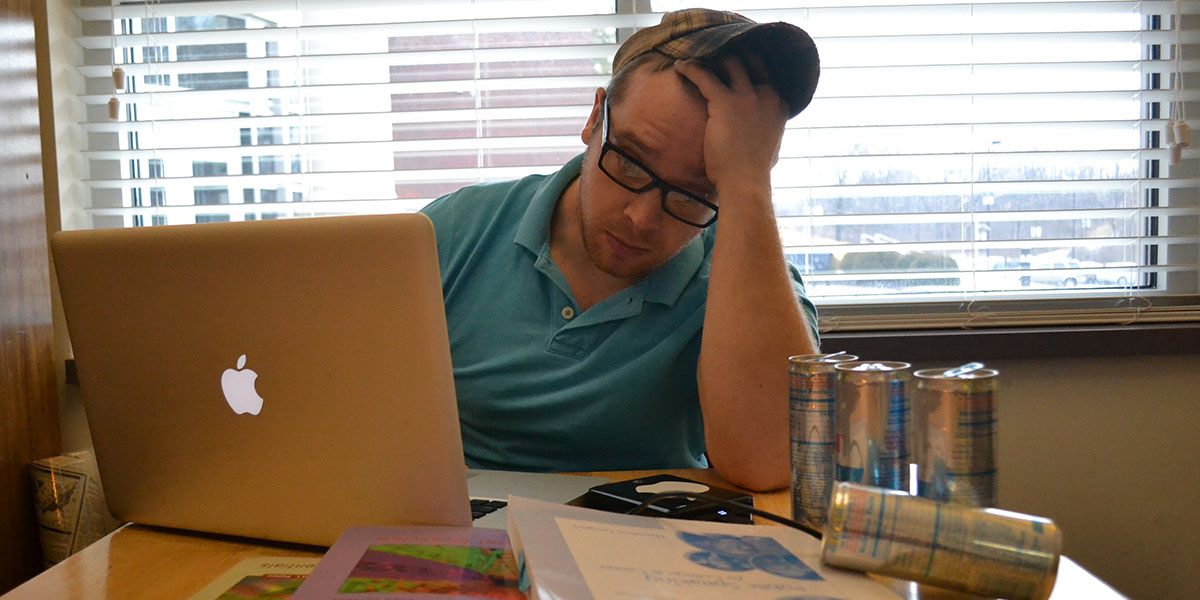Cramming may not get you an A, but it will definitely save you from an F.
__________________________________________________
Midterms are here and the feeling is equivalent to staring down a barrel of exams, thinking you’ll learn everything, but finding yourself avoiding it entirely by browsing through Netflix.
Sound familiar? Twenty four hours until the exam, so what do you do now? Cram.
You’re not the only one. The all-nighter is a time-honored academic tradition, but how beneficial is cramming?
Let’s face it, cramming for exams is inevitable while enduring the college experience, mainly due to chaotic schedules that compress classes, work and a social life into days that include only 24 hours.
Studies show the cramming process can be beneficial to students, but only provide temporary knowledge because all information is being stored in the short-term memory.
Cramming may assist in getting better grades at a quicker pace, but with solid study habits, you will not only increase long-term memory, but also minimize stress and test anxiety.
Take a break from your coffee, take a deep breath and gather your thoughts. All these exams coming up didn’t hit you like a bag of bricks. There has been at least a week that was considered the “calm before the storm,” or your study time.
The first tip to solid study habits is spacing out your study sessions.
According to Oxford Learning, studies show that good study habits form by a mechanism called the spacing effect. Its meaning is exactly how it sounds. Space out your study sessions by studying an hour here and an hour there. This will increase the memory and help retain information.
A second tip to avoid cramming is to get rid of your highlighter. For the love of all things neon, put the highlighter down.
Highlighting is only the brain’s way of saying that you’re having a minor anxiety attack and choosing to go back to preschool logic when the most essential parts of my class needed to be colored in.
Instead of highlighting, write out the important topics for the information. By doing so, it is possible to retain the information because you will be practicing the main types of learning: visual and kinesthetic, or hands-on.
Re-reading your notes is not considered studying, especially if you are re-reading while watching TV or reading juicy comments from a heated discussion on social media.
Put your notes into action by creating problems or potential questions for yourself, then go back to your notes and reflect on what was missed or what could be added.
Lastly, stop building the perfect nest. More often than not, students tend to spend so much time setting up the correct lighting, brewing the perfect pot of coffee to slurp down while in an intense study session, or making sure everything is perfectly clean before they begin.
Try going to a local coffee house where it is quiet and peaceful, but yet has that minor noise that doesn’t make you feel like you can hear your thoughts racing through your head or hear a pencil drop from 100 feet away.
All of these things may be good to do on a regular basis, but the only thing it is doing to you is being a subconscious distraction from studying. You don’t want to leave college with the biggest accomplishment being that you put the “pro” in procrastination.
With that being said, put your sunglasses on because your future just became brighter.
